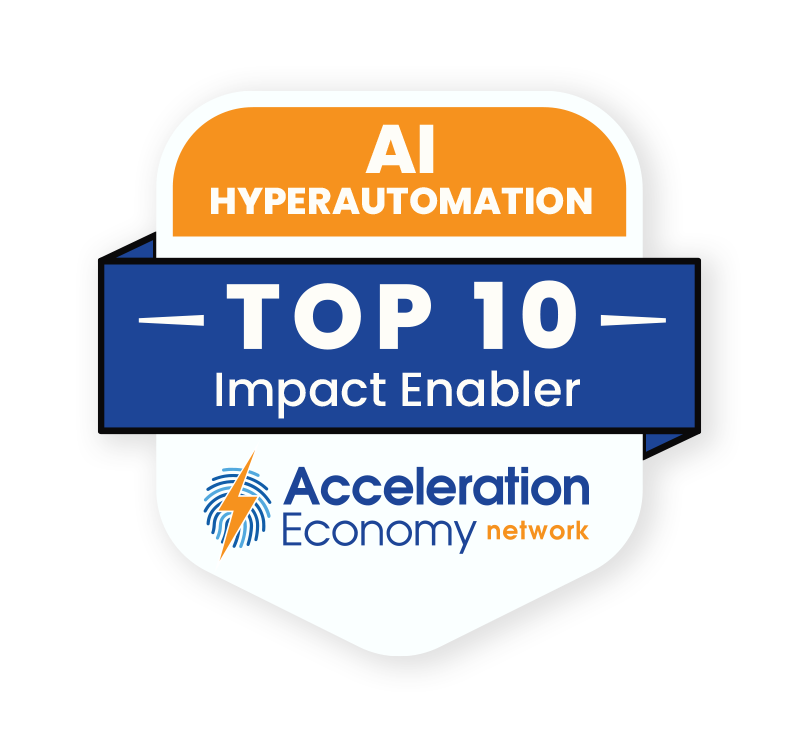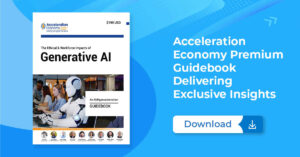Welcome to the AI Ecosystem Report, featuring practitioner analyst and entrepreneur Toni Witt. This series is intended to deliver the timely intelligence about artificial intelligence (AI) you need to get up to speed for an upcoming client engagement or board meeting.
In this AI Index Special Report, practitioner analyst and entrepreneur Toni Witt hosts 4X CEO Tony Uphoff for a conversation about how generative AI will impact professional roles and business processes.
Highlights
The Generative AI Revolution (00:27)
The transformation through the power of generative AI might be even bigger than technology transformations in the past. Oftentimes, people don’t realize that these revolutions are taking place because they’re so focused on getting up to speed with the technology itself.
Looking back, technology change precedes cultural change, from PCs to the Generative AI Revolution now. Each example of technological advancement not only changed how people communicate but also how companies operate.
The Generative AI Revolution is happening faster than those of the past. Generative AI now has the ability to enable users to push answers and information into the hands of people with proximity to opportunities, problems, or customer issues. It’s enabling companies to not need middle management and maximize the use of resources for customers.

Which companies are the most important vendors in AI and hyperautomation? Check out the Acceleration Economy AI/Hyperautomation Top 10 Shortlist.
Generative AI Creates New Roles (05:53)
Four interesting roles are emerging from generative AI. First is the role of the prompt engineer to optimize the use of generative AI. While most people filling this role come from technical backgrounds, companies are now starting to add non-technical management to prompt engineering because they understand the business challenges better than some technical workers.
Another involves AI maintenance and upkeep, which involves technology teams. Much of artificial intelligence has been about exploration, such as exploring machine learning and other models, to discover new use cases and capabilities. There needs to be specialists who understand how to maintain and advance this technology for organizations.
A third role is an AI Ethics Officer or an ethics committee. This role could be especially prevalent in large companies. It would be responsible for maintaining a governance of ethics of how the technology is used.
Finally, generative AI has introduced the need for teams who determine where the technology can be integrated into business processes, products, and services.
Generative AI Impacts Existing Roles (10:00)
As generative AI brings in new capabilities, it will have an impact on existing roles within organizations. it also puts pressure on data analytics and data science. There will need to be more people who have a deeper understanding of the capabilities of AI, the ethics, and the challenges specific to this technology.
Some generative AI capabilities are revolutionary. Rapidly analyzing loads of data, teasing out answers, and spotting trends is becoming a greater standard. Generative AI will increase the standards for data teams to best harness its power.
Designers and content creators will also be impacted by generative AI. Every company in the world is essentially a content company, from memos to brochures to marketing materials. Strong companies are constantly communicating internally as well as externally with customers. By harnessing the power of generative AI, organizations can have materials generated to adapt for better customer interactions with content.
IT Service Management roles can benefit from the support of generative AI to manage workflows, business processes, and customer requests.
Managing the Generative AI Shift (13:03)
Businesses can prepare to manage this upcoming change by educating those within the organization. Leaders must start the education process to better understand how they can take advantage of generative AI and get a feel for how the technology works. Companies should also consider projects that could be optimized with generative AI.
Think big, but start small. The idea of this “revolutionary technology” could change the way we work and change business models. However, it’s not going to happen overnight. Internal communication as well as board-level communication could be a good starting place to integrate this technology.
Be transparent: Communicate with your employees, engage your employees, encourage your employees, and embrace some of this technology. It’s an opportunity to begin education within your company.











